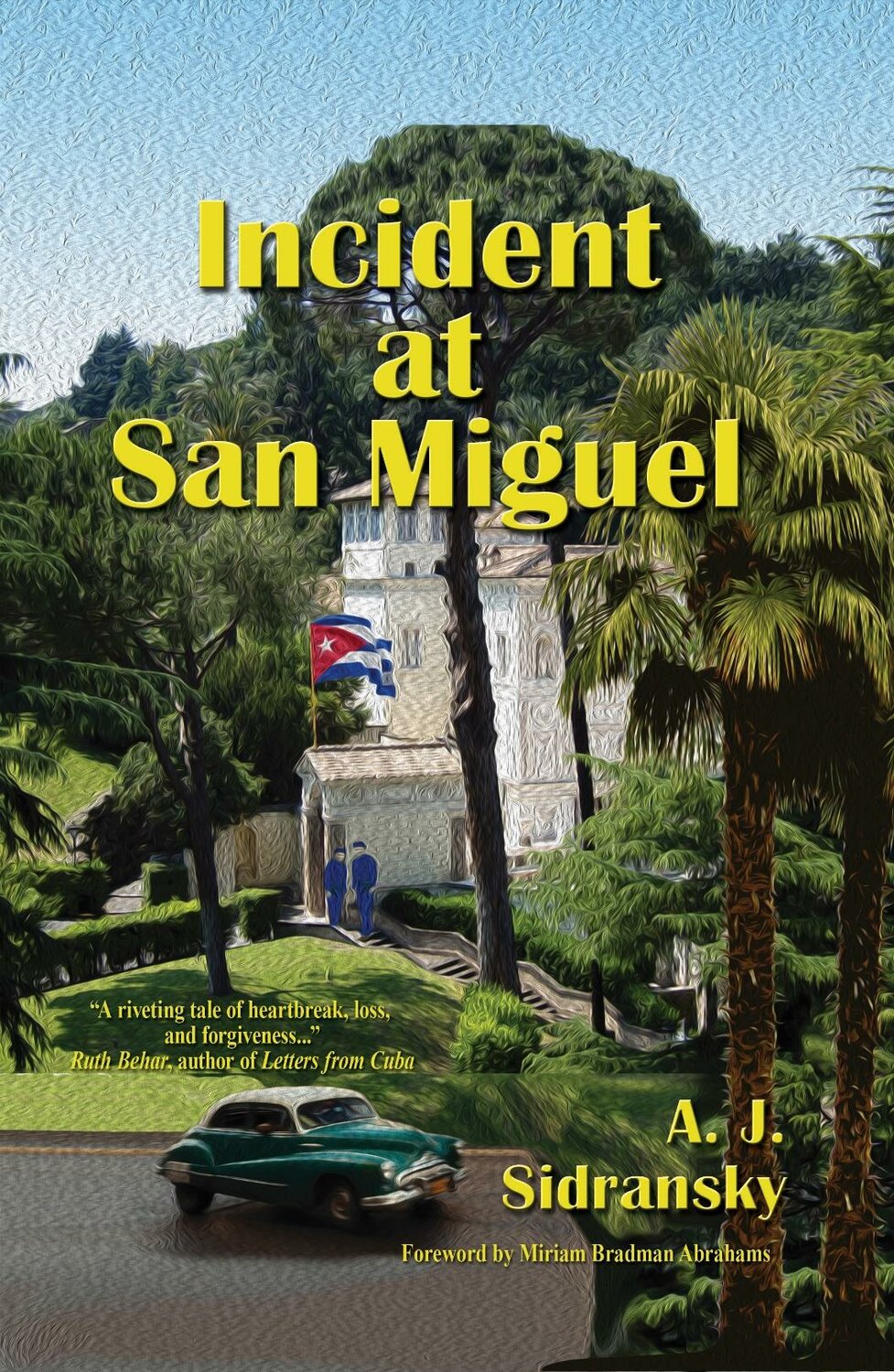Five Towns resident recalls escaping San Miguel
Longtime Five Towns resident Miriam Bradman Abrahams has her harrowing story of immigration from Cuba told in the new book “Incident at San Miguel.”
Abrahams, lived in Lawrence and Woodmere for 27 years. She now lives in Long Beach. Born in Cuba, her parents left, with her when she was 1.
The historical fiction book will be released May 19 and tells Abraham’s Jewish Cuban American family story of her father, Juan Bradman, a refugee, and immigrant, and his brother, Salomon, a Communist idealist who chose to remain in Cuba during Fidel Castro’s reign. The story illustrates the hardships of emigration and immigrants, and includes the details of how Abrahams and her parents fled Cuba to the U.S.
The book was written by Abrahams’s longtime friend and novelist, AJ Sidransky. Sidransky, began writing full-time in 2013 after years in the real estate business. His first novel “Forgiving Maximo Rothman’’ was shortlisted by the National Jewish Book Awards for Best Debut Fiction in 2013.
Abrahams is a volunteer reviewer for Jewish Book Council for the Jewish Book World publication and reviewed Sidransky’s first novel for the Jewish Book World publication and the two became friends.
Abrahams originally wanted to write a memoir for her father. She had published articles about her travels to Cuba but never published a book. She had a collection of 85 pages of interviews and stories about her family’s history in Cuba and their exit from Cuba. She presented the memoir to Sidransky in 2019.
“I gave him 80 pages of interviews with my parents and my thoughts and memories, and he was fascinated and told me that he could take all that information and make a fictional story around it,” Abrahams said.
Sidransky focuses on murder mysteries and historical fiction and said the story of Abraham’s family would be perfect to style into a historical fiction novel.
“The stories that I seek are about ordinary people faced with extraordinary circumstances,” Sidransky said. “How do they rise to the occasion when faced with these situations? I said to her [Abrahams], how would you and your parents feel about me using some of this for a novel?
Sidransky met with Abraham’s parents, and they fell in love with the idea immediately. Sidransky conducted interviews with over 30 other Cuban Americans and Jewish Cuban Americans, whose families had left Cuba, and said he came to understand was there was an overriding feeling of paranoia that develops in communist societies which he felt could be captured in his writing style.
“These stories of immigration are always heartbreaking, but at the same time, they’re inspiring,” Sidransky said. “I felt that this is something that readers would help them to understand the trauma of living through something like the Cuban Revolution and what it feels like to have to leave your home, become a refugee someplace else, and make a new life all over again.
Cuba, when Castro took, saw 90 percent of the Jewish community leave and Abrahams says the book represents much of what many who emigrated experienced.
“People know that there was a Jewish community in Havana and other parts of Cuba, but I don’t think they know details about how communism affected the residents,” Abrahams said. “It’s a relevant story for anybody interested in emigration, immigration, the hardships of learning a new language, and leaving your family behind. Especially in Cuba, that’s 90 miles off Key West and we don’t really know anything about it.”
“Incident at San Miguel” will be available on Amazon.

 45.0°,
Mostly Cloudy
45.0°,
Mostly Cloudy 




